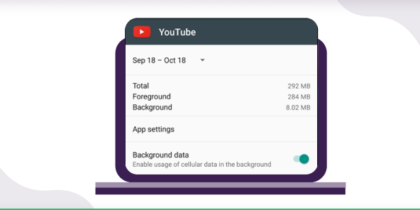Your email could be compromised.
Scan it on the dark web for free – no signup required.
In this latest edition, we’re zeroing in on a startling recruitment‑tech failure that has spilled nearly 26 million resumes into the open internet. TalentHook, a service used by countless HR teams, reportedly left an Azure Blob container wide open – no passwords, no encryption, no protection.
That means some of your most personal info – your full name, address, career roadmap – was just sitting there, waiting for anyone to grab it.
Key Facts At A Glance
- Scale: Nearly 26 million resume files publicly accessible
- Timeframe: Leak discovered January 7, 2025; disclosed April 2, 2025; CISA and CERT notified in April and May
- Exposed Data: Names, emails, phone numbers, addresses, education, work history
- Primary Risk: High potential for targeted phishing, fraudulent job offers, identity theft, and doxxing
- Protection Tip: Run a free and quick Dark Web Exposure Scan to see if your info is at risk
What Happened?
TalentHook – a Nevada‑based ATS used by HR teams – accidentally misconfigured an Azure Blob container. Instead of restricting access, it was left fully public. That meant anyone with the link could view and download millions of deeply personal documents.
These files contained deeply personal details – essentially a complete snapshot of users’ professional and personal identities.
What Data Was Leaked?
The exposed resumes revealed a comprehensive set of personal and professional information that cybercriminals can easily exploit, including:
- Full names
- Email addresses
- Phone numbers
- Home addresses
- Educational background
- Employment history
- Professional details
This isn’t just a CV – it’s a blueprint to your identity.
This kind of data is highly valuable on dark web markets – and even more dangerous in the hands of threat actors crafting targeted phishing scams, impersonation attempts, or employment frauds.
Who’s Behind It?
So far, no external hacker has claimed responsibility. The breach resulted from a simple but catastrophic misconfiguration, not necessarily a targeted attack. Cybersecurity researchers discovered the open container and responsibly alerted TalentHook and U.S. agencies (CISA, CERT).
Why This Breach Is Especially Dangerous
This isn’t about elite hacking – it was a basic security oversight that anyone with the link could exploit, and that’s what makes it worse:
- No protection: No encryption, no password, no token. In fact, anyone with the link could access and download highly personal data.
- Huge trove: Nearly 26 million records with details that don’t expire – ever tracked every job you’ve ever applied for?
- Long tail impact: Your resume info could be used years from now – for spear‑phishing, scams, or identity theft
This incident is more than just a misstep – it’s a warning that even sensitive job-seeking data is at risk when companies ignore basic cybersecurity hygiene.
Real-World Threats You Should Prepare For
The nature of the leaked data opens the door to highly targeted and manipulative attacks:
- Phishing & Spear-Phishing: Scammers can craft ultra-convincing emails or messages based on your job history, skills, and location.
- Fake Job Offers & Employment Scams: Fraudsters may impersonate recruiters, asking for payments or documents for fake roles.
- Identity Theft & Fraud: With home addresses, phone numbers, and work details exposed, impersonation becomes easy.
- Doxxing & Harassment: Personal details in the wrong hands can lead to public exposure or even physical threats.
What Can You Do To Stay Safe?
Whether you’re a business professional, employee, or customer, these breaches reinforce the need for proactive cybersecurity hygiene:
1. Check If Your Data Is on the Dark Web
Use PureVPN’s free Dark Web Exposure Scan (also linked above) to check if your data appears on dark web marketplaces or forums. The best part is that it only requires 30 seconds, and you can:
- See if your email appears in breaches
- Understand the severity and recency of exposure
- Compare the number of breaches involving your data
After all, being informed is the first step toward safeguarding your digital identity.
2. Strengthen Your Digital Defenses
- Use Strong, Unique Passwords: Store them with PureVPN’s Password Manager
- Enable Two-Factor Authentication (2FA) across critical services
- Monitor Financial Statements & Credit Reports for suspicious activity
- Be Cautious of Job Offers: Always verify recruiter authenticity via official channels
3. Adopt a Security-First Mindset
- Use a VPN: Encrypt your internet activity and safeguard identity using a premium VPN service like PureVPN
- Install Antivirus Software: Protect against phishing, malware, infostealers
- Signup for Dark Web Monitoring: If not already, you can signup or purchase PureVPN’s Max plan that includes Dark Web Monitoring, timely alerting if your most critical identifiers such as email address, credit card number, passport number, phone number and SSN/NIN (Social Security Number/National Identity Number) appear online on the dark web.
What’s Next & Why You Should Subscribe
This breach serves as a wake‑up call for job seekers and tech platforms alike: secure your cloud, or expose your users. With more services storing sensitive data, continuous risk monitoring is essential.
Why subscribe to Dark Web Digest?
- Get early alerts on major breaches
- Learn cybersecurity trends that impact your life
- Receive practical tips to defend your personal and professional data
Stay informed. Take action. Safeguard your career and identity.
Note: Information in this report is based on Cybernews and Modernizing Tech as of July 3–5, 2025. For ongoing updates, refer to official statements and cybersecurity news outlets.








